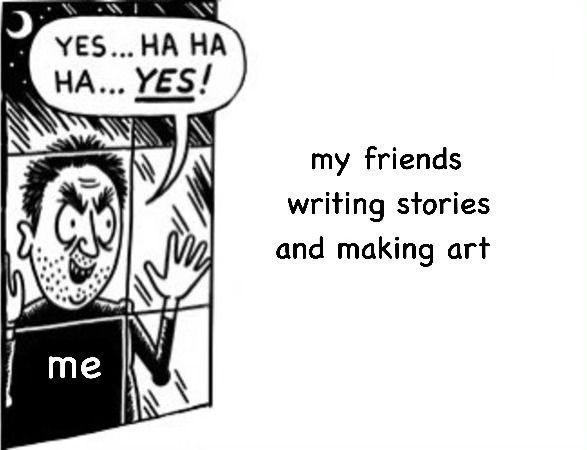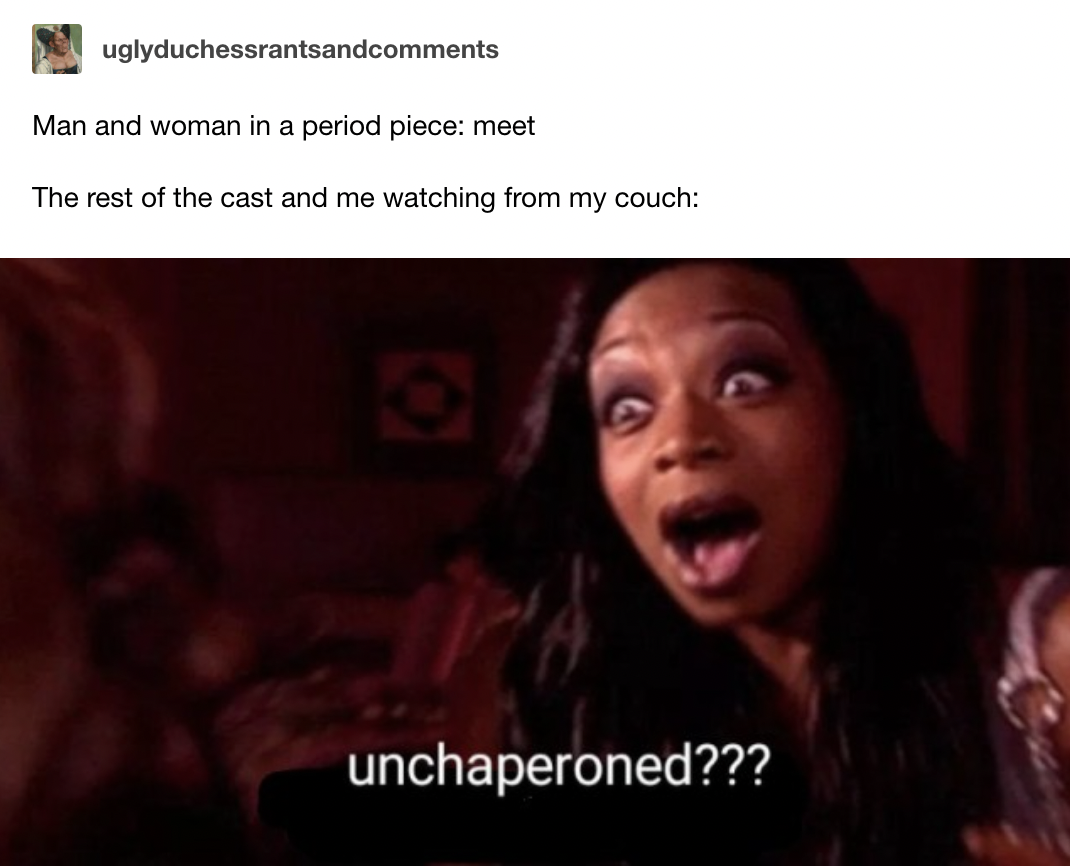Issue 47: How should a writer be (on the internet)?
Congratulations to the winners of last issue’s giveaway, Daniel and Katie, who will be receiving signed copies of Elaine Hsieh Chou’s Disorientation!
This past week I reread Allegra Hobbs’ excellent essay, “The Writer as Influencer.” Hobbs opens with this observation: “to be a writer today is to make yourself a product for public consumption on the internet, to project an appealing image that contextualizes the actual writing.” Written in 2019, it remains a relevant and useful examination of writing, social media, and the ways in which it feels increasingly necessary for writers to cultivate online personas in order to sell their work—and themselves.
As many people no doubt have done in the past few years, I have been reexamining my relationship with social media. After all, Twitter is most commonly described as a cesspool or “the hell site.” At the same time, I’ve attended more classes with titles like “How to build and use your online platform for good” and “Extremely Online for Writers: promoting your work with integrity.” While I’ve personally been tweeting and posting less, I also feel anxiety about dialing back my ~engagement~ and how it might affect my writing.
Sometimes I think about cutting all social media ties and living in blissful ignorance of the Main Character of Twitter on any given day. (All the power to you if you can do this.) But I know myself, and the more realistic thing is to adjust my outlook and how I show up online. Here are some of the questions I’ve been thinking about:
What do you want out of social media?
John Paul Brammer posed this question in his workshop, with the asterisk that “virality” is not necessarily a good answer. I grew up on the internet and it just naturally became the place to be. I didn’t second guess it. But Brammer provided a helpful reframing: social media is just another tool. It can be a testing ground for ideas, a place to connect with writers and other folks in the literary world, a way to learn about opportunities, etc. (I personally will stay on Twitter so I can continue stumbling across Shrekgetables tweets.)
Another consideration: what genre you primarily write in. Something I kept hearing in these classes was that an online following matters significantly more for those writing nonfiction (memoir, essays) than fiction. Still, there is no magic follower count that will make agents or editors turn their heads if your writing can’t stand on its own. Followers and clicks also do not equal book sales.
If you’re honest with yourself about what you want from your online presence, you can be more intentional about cultivating it.
How do you want to direct your attention?
Each platform—Twitter, Instagram, TikTok, newsletters—has different users, types of engagement, and tradeoffs. Kate McKean, of the newsletter Agents and Books, is one of my favorite writers about platforms. Building your platform, she says, starts with “putting your name out there where your readers will find it.”
I’ve heard nitty gritty advice around posting schedules, hashtag counts, and tricks for adding line breaks in Instagram posts. But all of that is secondary to (1) knowing how you want to direct your attention and (2) accepting the tradeoffs of your choices. I don’t care about making my Instagram writing-focused so I don’t spend as much time posting there. I like keeping Twitter as my primary semi-professional platform, since it's where both writing and engineering communities are more active. I started this very newsletter because I wanted to regularly commit to both my writing and (hopefully) help subscribers.
I’m also extremely wary of the trap Hobbs examines: that you end up spending more time performing your identity online than actually writing.
Is it sustainable?
The very nature of being a social media user is to be at the mercy of giant tech companies and their opaque algorithms. They shift strategies, like Instagram promoting Reels over normal posts because they want to compete with TikTok, or TikTok now encouraging ten minute videos so they can compete with YouTube. Having to respond to these kinds of changes is exhausting. Yet the most surefire way to increase your presence on any platform is to just post more—even better if it’s more of what they want.
I can now almost write the Twitter cycles for outrage and trending topics, the backlash, then the backlash to the backlash. I’ve done my fair of rage tweeting and one thread even went viral, and that thread got me a byline. But I just don’t find those things worth chasing anymore. The more flattened and predictable these interactions are, the less I want to partake. Brammer reminded me, “you don’t want the dopamine rush to dictate your work.”
I also remind myself that I can always just opt out. ~Building your brand~ is work, even though the goal is to make it seem effortless. If something isn’t sustainable, you don’t have to keep doing it.
Does it feel icky?
McKean acknowledges that self-promotion is all caps UTTERLY EXCRUCIATING. There are lots of cringy feelings (I have cringed writing this entire newsletter), but she notes that there are also facts one has to accept as a writer. Self-promotion is part of the writing process. After all, “the most famous writers have always been public figures with their own media-fueled mythos,” Hobbs writes.
It’s helpful to balance feelings with facts, which McKean says ultimately leads to acceptance. There’s a degree of dissonance inherent in all of this, but know that you aren’t alone. Jia Tolentino tells Hobbs she is “distressed by the imperative to commodify herself to sell her work, but it is something she recognizes as inescapable.”
Self-promotion today, however, demands a higher amount of effort and access. Listening to your gut and reminding yourself of your priorities can help you draw boundaries around what you’re comfortable sharing.
Tolentino’s perspective is particularly grounding, and one I continue returning to: “My actual self and life are a lot more important to me than the online representation of such, that my work is more important to me than any public idea of that work.”


Creative resources
- “We are all but forced to make ourselves, not just our words, the thing we sell.” — Allegra Hobbs on anxiety, authenticity, and the writer as influencer
- Applications due April 15: Applications are open for The Cabins, a collaborative retreat for people working in the creative arts. Apply for the FSG Writer’s Fellowship, a yearlong program designed to give an emerging writer from an underrepresented community funding, editorial guidance, and other resources to build a life around writing.
- Ijeoma Oluo describes her experiences with internet backlash to her writing. Her reflections and tips are helpful for encouraging you to put your writing out there, and to better protect your safety and sanity in the process.
- “What makes for successful social media for authors?” by Claire Handscombe
- I read a short story at The Community Reading Series by The Cosmos last night! It’s a monthly event for Asian women writers at Yu & Me Books in New York City. Sign up to speak at a future reading here!
Recent reads & other media
In romance, I read Tessa Bailey’s Hook, Line, and Sinker. Season two of Bridgerton is 80% yearning and 20% breathing seductively over your love interest’s face but not kissing. It is frustrating and I’m here for it.
E and I have been watching Severance and Pachinko on Apple TV+. Severance takes the idea of a work/life balance to terrifying extremes. Plus, the chemistry between John Turturro and Christopher Walken is excellent. Pachinko is exquisite in every dimension (episode three brought me to tears), and makes me want to reread the book. I’ve been reading a lot of reviews and recaps, including Alex Sujong Laughlin’s interview with the cast and showrunner.
A friend and I saw Everything Everywhere All At Once this past weekend and it’s so ambitious, wacky, emotional, and mind-bending I already want to watch it again. It’s been so interesting to see movies like this and Turning Red, which both deal with mother/daughter relationships, inheritance, and immigration in vastly different genres.
Note: Book links are connected to my Bookshop affiliate page. If you purchase a book from there, you'll be supporting my work and local independent bookstores!
~ meme myself and i ~
The ultimate tote bag. Omurice bears—who did it better? Woman who makes wearing jumpsuits her whole personality. This dog can open doors and it’s terrifying. A step-by-step guide to becoming a fossil. Someone greenlight this baking competition show immediately.

